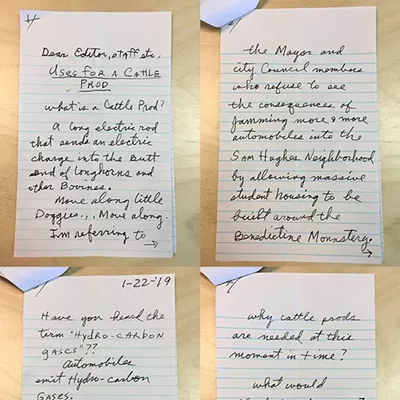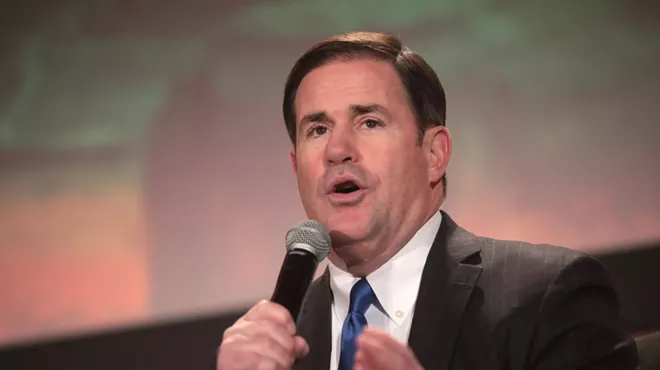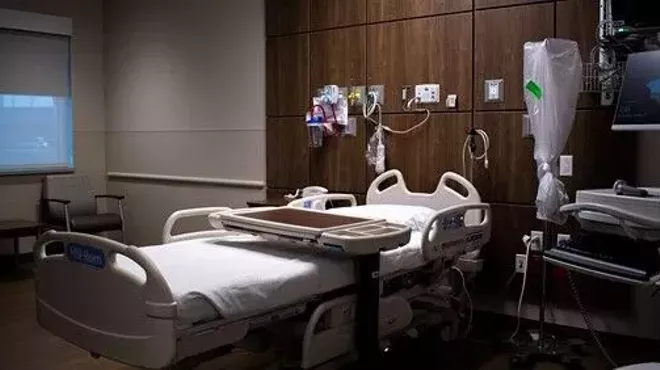Friday, January 25, 2019
Pima County and City of Tucson File Lawsuits Against Opioid Manufacturers and Distributors
Pima County and the City of Tucson have filed separate but identical lawsuits in Superior Court against more than 20 national companies that manufacture and/or distribute opioids in the region, according to a press release. The lawsuits are intended to address the opioid epidemic and its impacts on citizens.
Purdue Pharma Inc., The Purdue Frederick Company, Cephalon, Inc., Teva Pharmaceutical Industries, Ltd., Teva Pharmaceuticals USA, Inc., Johnson & Johnson, Janssen Pharmaceuticals, Inc., Endo Health Solutions Inc., Allergan PLC, Watson Laboratories, Inc., Actavis Pharma, Mallinckrodt, LLC, Insys Therapeutics, Inc., Mckesson Corporation, Cardinal Health, Inc., Amerisourcebergen Drug Corporation, H.D. Smith, LLC, Anda Pharmaceuticals, Inc. and related companies were listed as defendants in the lawsuits.
In a 94-page complaint filed on Thursday, Jan. 17, attorneys argued that the manufacturer defendants knowingly and aggressively promoted misleading advertisements about specific drugs they produced as well as opioids in general.
The document explains:
The lawsuit claims the manufacturer defendants marketed through "third-party, unbranded advertising to avoid regulatory scrutiny because that advertising is not submitted to and typically is not reviewed by the FDA."
The lawsuit listed the most prominent of these groups as APF, which received more than $10 million in funding from opioid manufacturers from 2007 until it ceased operations in May 2012.
The attorneys argue that the distributor defendants intentionally and repeatedly breached their legal duties to monitor and report suspicious orders of opioids in the interest of financial gain. Their histories with distribution negligence were described in the complaint:
The complaint explains there were 526 opioid deaths in Arizona in 2013, a number that increased by at least 100 deaths each year from 2014 to 2017. On June 5, 2017, Governor Doug Ducey declared a State of Emergency because of the opioid epidemic. From June 15, 2017 to September 13, 2018, there were 1,699 opioid overdoses reported in Pima County.
The complaints include the following counts against the manufacturer defendants: violation of the Arizona’s Consumer Protection Act, fraudulent misrepresentation, negligent misrepresentation and strict liability. Counts against all defendants included public nuisance and unjust enrichment.
The City of Tucson and Pima County are represented by the law firms of former Arizona Attorney General Grant Woods, former Mississippi Attorney General Mike Moore, the law offices of Joseph C. Tann and the Tucson-based law firm Rusing Lopez & Lizardi, according to the press release.
Purdue Pharma Inc., The Purdue Frederick Company, Cephalon, Inc., Teva Pharmaceutical Industries, Ltd., Teva Pharmaceuticals USA, Inc., Johnson & Johnson, Janssen Pharmaceuticals, Inc., Endo Health Solutions Inc., Allergan PLC, Watson Laboratories, Inc., Actavis Pharma, Mallinckrodt, LLC, Insys Therapeutics, Inc., Mckesson Corporation, Cardinal Health, Inc., Amerisourcebergen Drug Corporation, H.D. Smith, LLC, Anda Pharmaceuticals, Inc. and related companies were listed as defendants in the lawsuits.
In a 94-page complaint filed on Thursday, Jan. 17, attorneys argued that the manufacturer defendants knowingly and aggressively promoted misleading advertisements about specific drugs they produced as well as opioids in general.
The document explains:
"Each Manufacturer Defendant used both direct marketing and unbranded advertising disseminated by seemingly independent third parties to spread false and deceptive statements about the risks and benefits of long-term opioid use—statements that benefited not only themselves and the third-parties who gained legitimacy, but all opioid manufacturers. Yet these statements were not only unsupported by and contrary to the scientific evidence, they were also contrary to pronouncements by and guidance from the FDA and CDC based on that evidence. They also targeted susceptible prescribers and vulnerable patient populations."It claims the defendants spent more than $14 million on medical journal advertising in 2011, which is nearly triple their amount spent in 2001. The lawsuit also claims each manufacturer defendant "promoted the use of opioids for chronic pain through 'detailers'—sales representatives who visited individual doctors and medical staff in their offices—and small-group speaker programs."
The lawsuit claims the manufacturer defendants marketed through "third-party, unbranded advertising to avoid regulatory scrutiny because that advertising is not submitted to and typically is not reviewed by the FDA."
The lawsuit listed the most prominent of these groups as APF, which received more than $10 million in funding from opioid manufacturers from 2007 until it ceased operations in May 2012.
"APF issued education guides for patients, reporters, and policymakers that touted the benefits of opioids for chronic pain and trivialized their risks, particularly the risk of addiction. APF also launched a campaign to promote opioids for military veterans, which has contributed to high rates of addiction and other adverse outcomes – including death – among that target population. APF also engaged in a significant multimedia campaign – through radio, television and the Internet – to educate patients about their 'right' to pain treatment, namely opioids."The complaint explained a long history of the distributor defendants coming under scrutiny from the DEA because of their practices. On September 27, 2006, the DEA sent a letter to each distributor defendant warning that they have a "legal duty to design and operate a system to flag suspicious orders, to report all such suspicious orders, and to exercise due diligence to avoid filling suspicious orders that might be diverted into other than legitimate medical, scientific, and industrial channels," according to the document. On December 27, 2007, the DEA sent a second letter reiterating their point.
The attorneys argue that the distributor defendants intentionally and repeatedly breached their legal duties to monitor and report suspicious orders of opioids in the interest of financial gain. Their histories with distribution negligence were described in the complaint:
"In 2008, McKesson paid a $13.25 million fine to the United States to settle claims it failed to report hundreds of suspicious orders from Internet pharmacies that sold drugs online to customers who didn't have legal prescriptions.Attorneys claim that many of the opioid shipments to Tucson should have been stopped or reported as potential suspicious orders.
In 2008, Cardinal Health paid a $34 million fine to the United States to resolve allegations that it failed to monitor or report suspicious opioid orders.
In 2016, Cardinal Health agreed to pay a $44 million fine to the United States to resolve allegations that it failed to monitor or report suspicious opioid orders.
In 2017, Cardinal Health agreed to pay $20 million to the State of West Virginia to resolve allegations that it failed to monitor or report suspicious opioid orders."
The complaint explains there were 526 opioid deaths in Arizona in 2013, a number that increased by at least 100 deaths each year from 2014 to 2017. On June 5, 2017, Governor Doug Ducey declared a State of Emergency because of the opioid epidemic. From June 15, 2017 to September 13, 2018, there were 1,699 opioid overdoses reported in Pima County.
The complaints include the following counts against the manufacturer defendants: violation of the Arizona’s Consumer Protection Act, fraudulent misrepresentation, negligent misrepresentation and strict liability. Counts against all defendants included public nuisance and unjust enrichment.
The City of Tucson and Pima County are represented by the law firms of former Arizona Attorney General Grant Woods, former Mississippi Attorney General Mike Moore, the law offices of Joseph C. Tann and the Tucson-based law firm Rusing Lopez & Lizardi, according to the press release.
Tags: Opioid , Drug , Enforcement , Addiction , Epidemic , Overdose , Legal , Lawsuit , City of Tucson , Pima County , Image
















